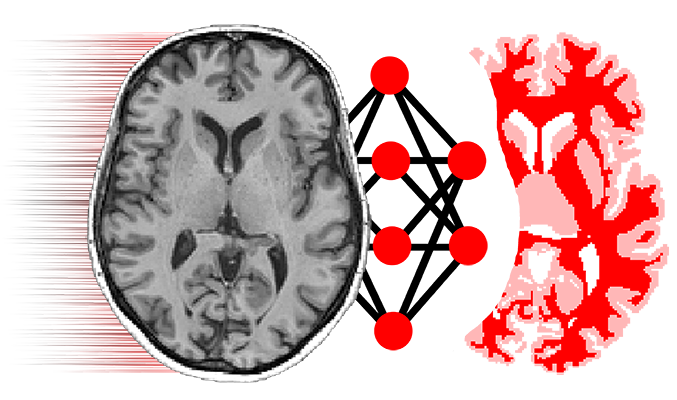niftynet.engine.image_window module¶
This module provides an interface for data elements to be generated by an image sampler.
-
class
ImageWindow(shapes, dtypes)[source]¶ Bases:
objectEach window is associated with a tuple of coordinates. These data properties are used to create TF placeholders or
tf.data.Datasetwhen constructing a TF graph. Sampler read the data specifications and fill the placeholder/dataset.-
__init__(shapes, dtypes)[source]¶ Parameters: - shapes – A nested structure of tuple corresponding to size of each image window
- dtypes – A nested structure of tf.DType objects corresponding to each image window
-
names¶ a tuple of output modality names
Type: return
-
shapes¶ a dictionary of image window and location shapes
Type: return
-
tf_shapes¶ a dictionary of sampler output tensor shapes
Type: return
-
tf_dtypes¶ tensorflow dtypes of the window.
Type: return
-
classmethod
from_data_reader_properties(source_names, image_shapes, image_dtypes, window_sizes=None, allow_dynamic=False)[source]¶ Create a window instance with input data properties each property is grouped into dict, with pairs of image_name: data_value. Some input images is a concatenated data array from multiple data sources. example of input:
source_names={ 'image': (u'modality1', u'modality2'), 'label': (u'modality3',)}, image_shapes={ 'image': (192, 160, 192, 1, 2), 'label': (192, 160, 192, 1, 1)}, image_dtypes={ 'image': tf.float32, 'label': tf.float32}, window_sizes={ 'image': (10, 10, 2), 'label': (10, 10, 2)}
the
window_sizescan also be:window_sizes={ 'modality1': (10, 10, 2), 'modality3': (10, 10, 2)}
or using a nested dictionary with ‘spatial_window_size’ (deprecating):
window_sizes={ 'modality1': {'spatial_window_size': (10, 10, 2)}, 'modality2': {'spatial_window_size': (10, 10, 2)}, 'modality3': {'spatial_window_size': (5, 5, 1)}}
see
niftynet.io.ImageReaderfor more details.Parameters: - source_names – input image names
- image_shapes – tuple of image window shapes
- image_dtypes – tuple of image window data types
- window_sizes – window sizes for the image image
- allow_dynamic – if True, window_sizes negative or 0 indicates dynamic window sizes; . Otherwise the dynamic sizes will be fixed as the image shapes; this assumes the same image size across the dataset.
Returns: an ImageWindow instance
-
set_spatial_shape(spatial_window, source_names=None)[source]¶ Set all spatial window of the window.
spatial_window should be a dictionary of window sizes tuples or single window size tuple. In the latter case the size will be used by all output image windows.
Parameters: - spatial_window – tuple of integers specifying new shape
- source_names – list/dictionary of input source names
Returns:
-
placeholders_dict(n_samples=1)[source]¶ This function create a dictionary with items of
{name: placeholders}name should match the queue input names placeholders corresponds to the image window data for each of these items an additional{location_name: placeholders}is created to hold the spatial location of the image window. Used in the queue-based tensorflow APIs.Parameters: n_samples – specifies the number of image windows Returns: a dictionary with window data and locations placeholders
-
coordinates_placeholder(name)[source]¶ Get coordinates placeholder, location name is formed using
LOCATION_FORMAT. Used in the queue-based tensorflow APIs.Parameters: name – input name string Returns: coordinates placeholder
-
